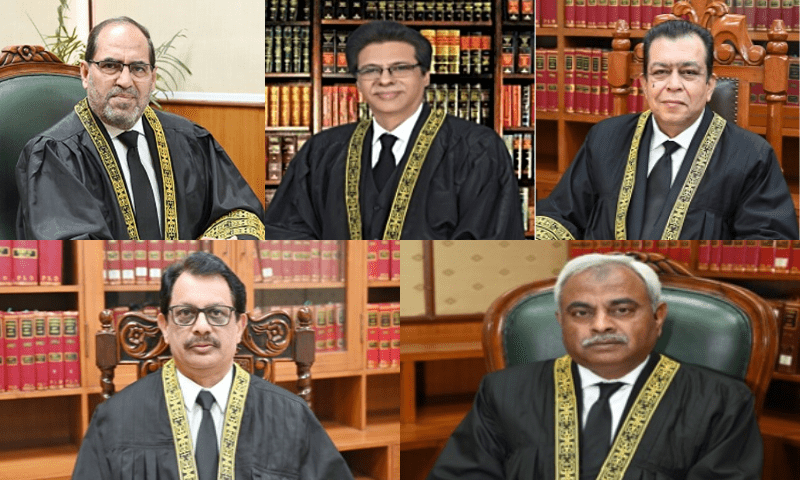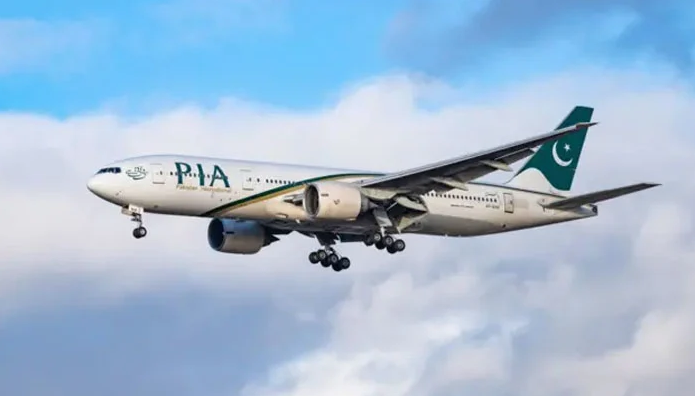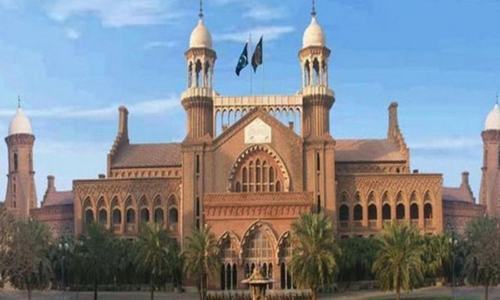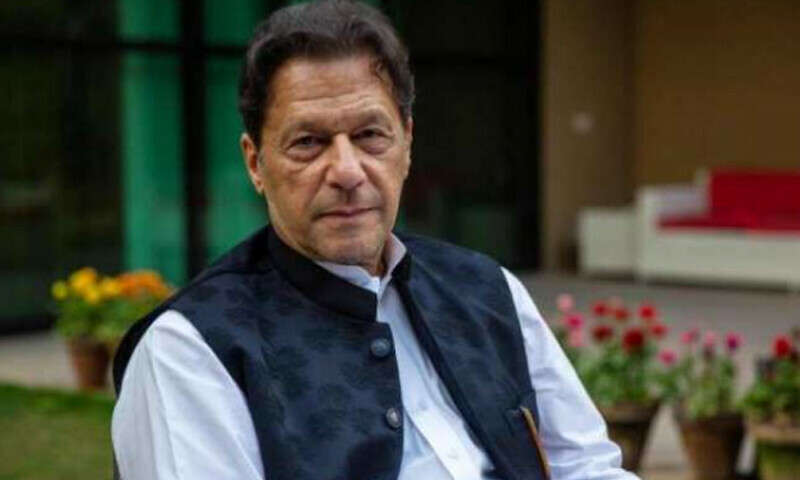LEGAL

A five-member constitutional bench of the Supreme Court of Pakistan has issued notices to three high court judges transferred to the Islamabad High Court (IHC), along with court registrars, in a case challenging the legality of their appointments and changes in the seniority list.
The bench, led by Justice Muhammad Ali Mazhar and including Justices Naeem Akhtar Afghan, Shahid Bilal Hassan, Salahuddin Panhwar, and Shakeel Ahmed, heard seven petitions related to the transfers made in February 2024. The petitioners include five IHC judges, the Karachi Bar Association (KBA), and the Islamabad High Court Bar Association.
In February, Justice Sardar Mohammad Sarfraz Dogar (LHC), Justice Khadim Hussain Soomro (SHC), and Justice Muhammad Asif (BHC) were transferred to the IHC. The controversy erupted when Justice Dogar was appointed senior puisne judge at the IHC, subsequently becoming acting chief justice after Justice Aamer Farooq’s elevation to the Supreme Court.
The petitioners, including IHC judges Justices Mohsin Akhtar Kayani, Tariq Mehmood Jahangiri, Babar Sattar, Sardar Ejaz Ishaq Khan, and Saman Rafat Imtiaz, argue that such transfers violated constitutional norms. They contend that transferred judges must retake their oath under Article 194 to be considered permanent members of a new court and that their seniority should be counted from the date of their new oath — not from prior service.
Legal heavyweights including former Attorney General Munir A. Malik, Barrister Salahuddin Ahmed, Faisal Siddiqui, and Hamid Khan represented different bar associations and judges. Attorney General Mansoor Usman Awan appeared on behalf of the federal government. PTI founder Imran Khan’s lawyer also sought the full record of the judges’ transfers.
The court issued notices to the three transferred judges, the registrars of all relevant high courts, and the Attorney General. However, it rejected requests to restrain the transferred judges from continuing their judicial duties. The case has been adjourned till April 17, a day before a Judicial Commission of Pakistan (JCP) meeting where Justice Dogar’s elevation to the Supreme Court may be considered.
Justice Mazhar noted during proceedings that the main questions include the legality of the transfers under Article 200 of the Constitution and how seniority is to be determined post-transfer. Malik and other petitioners stressed that transfers should not impact existing judges' seniority and warned that such practices undermine judicial independence and constitutional spirit.
The controversy has sparked debate among the legal fraternity, with several bar associations opposing the appointments and accusing the authorities of manipulating seniority to influence judicial elevations. Four Supreme Court judges — Justices Syed Mansoor Ali Shah, Munib Akhtar, Ayesha A. Malik, and Athar Minallah — have also raised concerns over this growing practice.
The Supreme Court is now tasked with deciding whether these judicial transfers and seniority modifications are constitutional, a ruling that could shape future judicial appointments and the balance of power within Pakistan’s judiciary.



